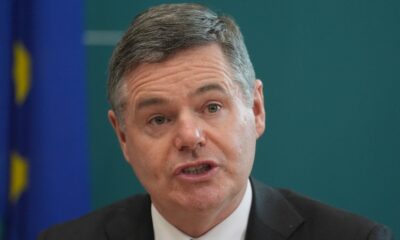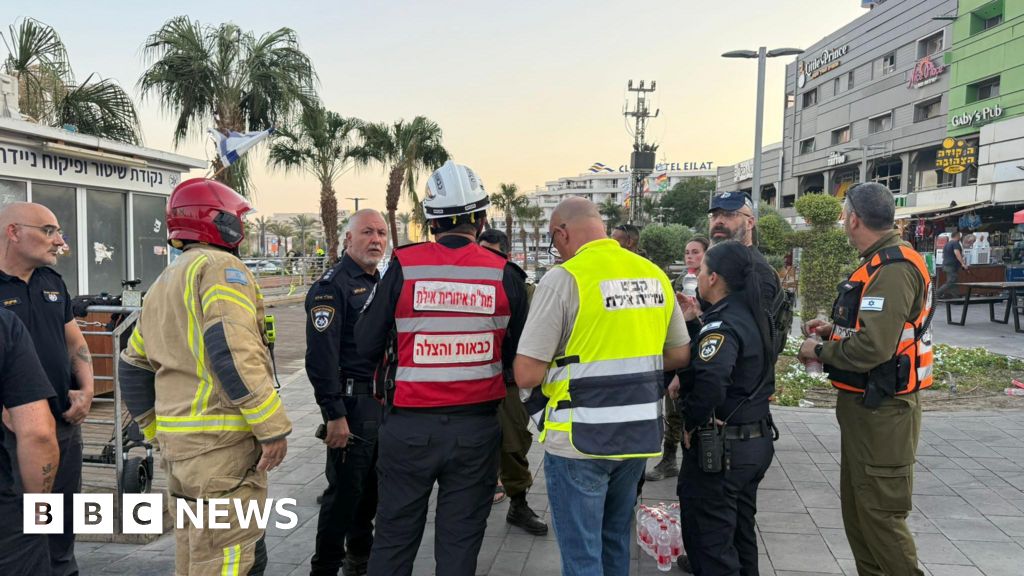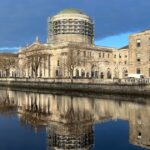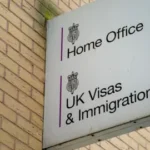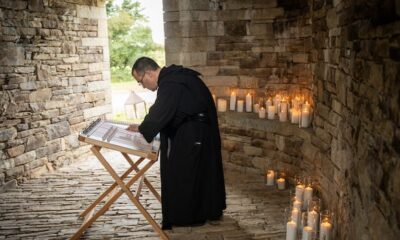PRESIDENTIAL CANDIDATE CATHERINE Connolly has said that she was asked to nominate conservative hopeful Maria Steen, but it was too late in the day and she had already signed her papers.
Steen faced an uphill battle to secure the 20 required nominations by members of the Oireachtas to make it onto the presidential ballot. This morning, as the noon deadline approached, she and her team admitted defeat.
Steen had garnered 18 nominations from Aontú’s three Oireachtas members, Independent Ireland’s 4 TDs, Independent TDs, Ministers of State, and senators over her short campaign, which was spearheaded by Aontú leader Peadar Tóibín.
Tóibín and Steen had approached numerous potential backers over the past few days in hopes of closing the gap, many to no avail.
Connolly this evening said: “I was asked very late in the day, I was running down to the Custom House.”
Connolly had submitted her nomination papers at the Custom House yesterday afternoon.
The TD said that it is very difficult to get a nomination for the presidency over the line, in light of Steen missing out despite having the backing of 18 members of the Oireachtas.
Speaking on RTÉ Radio One’s Drivetime programme Connolly said that a “healthy democracy” would be open to a debate in relation to “whether we should extend that nomination process for the next presidential election or not”.
Independent Ireland, which yesterday announced its parliamentary party would be backing Steen’s bid, said it has begun the process of bringing a bill before the Dáil to call for a referendum on reforming the presidential nomination system.
The party said the events around this year’s presidential election have highlighted “an affront to democracy that can no longer be ignored”, and added that although it recognises that not everyone who wishes to run for the office should “automatically appear” on the ballot, the barriers are now “set so high”.
It wants to change the required 20 Oireachtas nominations to 20 from Oireachtas members and MEPs. On the council route, it has suggested that a candidate have the backing of 80 individual councillors rather than four entire councils.
In New York, Taoiseach Micheál Martin dismissed claims that the process to become a candidate was not democratic.
“The Constitution lays down how the president of Ireland gets elected and the nomination procedures, and clearly, those who can garner a significant breadth of support ultimately gets elected as candidates, and some of the people who are asserting that it’s a undemocratic are the very same people who are attacking government day in and day out,” he said.
Martin continued: “It’s quite extraordinary that the people who are criticising Fianna Fáil for quite a number of years now expect us to support their candidate – it’s extraordinary. It’s not something I think is tenable. When you step back, the democratic process has worked and is working.”
Tanaiste Simon Harris says there are ‘three decent people’ now in the race to become president.
While he says he’s open minded, he’s not convinced the process to get on the ballot needs reform. pic.twitter.com/XutYmOgYFg
— Christina Finn (@christinafinn8) September 24, 2025
Tánaiste Simon Harris, also in New York for the General Assembly of the United Nations, spoke to reporters after nominations closed this afternoon.
He said there are “three decent people seeking the office – and indeed many other decent people who I’m sure tried to get on the ballot too”. He added that he’s “not convinced” that the nomination process to contest the presidential election needs reform but he remains “open-minded”.
Connolly, who was the first of the three official candidates to appear on the programme today, said that she believes she should be President of Ireland she said that she would be unafraid to speak out on issues such as climate change if in the role, and that she believes she can represent the values of the Irish people both nationally and internationally.
Presenter Cormac Ó hEadhra asked her if she believed she is good enough of a communicator to be able to be the President, considering she had to “explain” her comments on Hamas after she appeared on a BBC NI news programme.
“My communication is excellent. I think the difficulty is that I speak bluntly, honestly, and I always speak after reflection and after I’ve done my research,” she said.
Connolly wouldn’t be drawn on whether she would agree with a push for a border poll in the next decade – which is the aim of Sinn Féin, the largest party who is backing her.
She said she’d leave that matter to the politicians, but added that she would love to see a united Ireland in her lifetime.
Jim Gavin
On the same programme, Fianna Fáil’s election candidate Jim Gavin said his main aims for the presidency are to be a “positive president” and highlight issues impacting society.
He said he was “not in a position” to speak out on social issues in his previous positions, including as Dublin football manager when players on his team were facing online abuse.
“I’ll shine a light on the great things that we do in the country, but I’d also highlight the vulnerable in our society.”
Discussing his plans to host public forums on issues such as homelessness and the environment, he said he also wants to put pressure on the Oireachtas regarding these topics.
He denied his role as candidate for the main party in government would impact this.
“My campaign will be focused on a positive message, particularly in a time of division within society. I will bring people together. I’ll unify people. I’ll search for the threads that bind us together.”
He also would not confirm whether he will be seeking the public to give Fine Gael candidate Heather Humphrey’s their second vote.
“I won’t be telling people what to do,” he said.
Heather Humphreys
Fine Gael’s Áras hopeful Heather Humphreys was the final guest on Drivetime, where she refused to say whether she would take responsibility for her party’s record on housing in government.
Host Sarah McInerney put it to her that she is “the ultimate establishment candidate”.
“Some people might say establishment, but I say experienced,” Humphreys replied. “I’d ask people to judge me on my track record in the ministries that I have held.”
She was also pressed on whether, like President Michael D. Higgins, she would be openly critical of government policy on housing.
Higgins has previously said the issue could no longer be considered a crisis, “but a disaster.”
Humphreys avoided the word “disaster,” but conceded that Higgins “was right.”
“I will be a president for all, and I can assure you of that,” she said. “And yes, Michael D. was right – housing is the biggest challenge facing this country.”
Asked if she would speak out on Gaza as Higgins has, Humphreys described the conflict as “a genocide.”
She added: “It’s so important that we do speak out, but we must remember that the President doesn’t set foreign policy. The role can, however, be a moral voice.”
On her husband’s links to the Orange Order, Humphreys said she has “always been open” about it.
“I think I’m uniquely placed to reach out the hand of friendship to both nationalist and unionist traditions in Northern Ireland. I want to build on the great work of Mary McAleese and build bridges across communities,” she said.
Asked when she would like to see a united Ireland, she declined to give a date.
Reporting by Eimer McAuley, Christina Finn in New York, Sophie Finn, Andrew Walsh, and Emma Hickey




